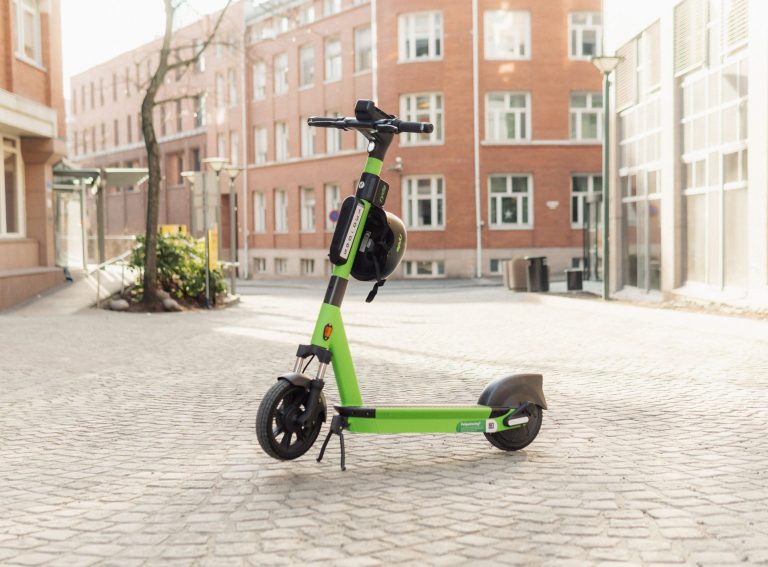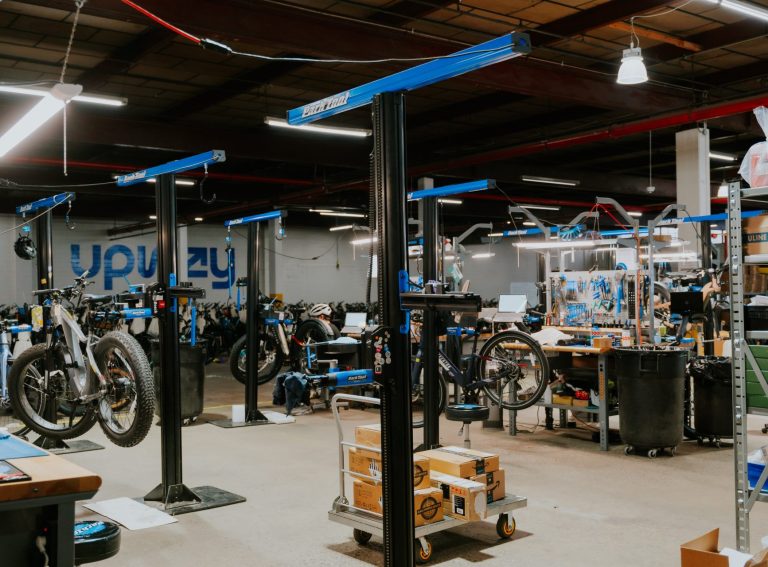In April 2023, sustainable last-mile delivery company Delivery Mates began operating one of London’s first micro-logistics hub trials out of Q-Park in Pimlico by repurposing six parking bays to facilitate eco-friendly parcel distribution from its fleet of e-cargo bikes.
The trial was created and funded by a collaboration between Westminster City Council (WCC) and Cross River Partnership (CRP), and was designed to revolutionise last-mile deliveries in Westminster. While it was initially due to run for six months, the trial was extended to nine when WCC and CRP secured additional funding.
Delivery Mates COO Kevin Savage – who spent more than 15 years working for DHL prior to joining Delivery Mates – was encouraged by the results, with the hub enabling 722km of cargo bike deliveries in the first five months of the trial.
By the time it concluded in late December 2023, it had facilitated an average of 170 deliveries per day.
“We were operating up to 12 cargo bikes from six car parking spaces, which means we were removing as many as 12 vans a day from the streets of Westminster,” Savage tells Zag Daily.
“Each bike can manage two trips per hour and will run for eight to nine hours in a day. Over the nine months we completed almost 128,000 deliveries, the equivalent to a van operation.”
The trial was also supported by Decarbon Logistics Solutions, and was part of the Defra-funded Clean Air Logistics for London (CALL) and Smarter Greener Logistics (SGL) programmes. In designing the trial, the partners hoped to meet three main objectives: taking vans off the road, reducing emissions produced in the city and engaging local businesses.
“We achieved the first two of these goals, but engaging local businesses took longer than expected,” explains Savage.
“Getting some of them to transition from vans to cargo bikes was more difficult than we thought.”
London-wide implications
Now the trial has completed, Delivery Mates has high hopes for this kind of operation moving forward. The e-cargo bikes favourable comparison to van deliveries, combined with the limited space the hub took up has made Savage believe their company has proven the microhub concept on a borough wide level.
“Off the back of this trial, Wandsworth Council has signed up and there is a roadmap in place for at least 10 London boroughs to support the launch of their own microhubs this year.
“Anywhere around the world microhubs can operate as effectively as a fleet of vans, and they only need six car parking spaces.”
Other London councils were convinced of the concept’s worth at a CRP event where Delivery Mates demonstrated the significant emissions it was able to eliminate.
“There was real interest because for quite a small investment you can see big results,” Savage adds.
“We are also continuing to operate in Westminster because the support that we received over the first nine months enabled us to build a business model that was sustainable.”
According to data compiled by CRP, the cargo bikes travelled a total distance of 22,578km over the nine month trial, which led to emissions savings of 4,186kg of CO2, 15,141g of NOx, and 303g of PM2.5 (particulate matter less than 2.5 micrometres).
“PM2.5 is invisible, but it sits on people’s lungs and is a major cause of premature deaths,” Savage explains.
“There is a study showing that PM2.5 comes as much from electric vans as it does from normal vans because of the particulate matter from their tires. So while it is under-discussed it is really important for protecting people’s health.”
Hyper-local delivery
Savage believes that another core advantage of microhubs in comparison with out-of-town depots is the time savings they allow for. According to Delivery Mates research, the average van will travel more than two-and-a-half hours each day just reaching the delivery zone, but inner city traffic is far less of a concern for a rider on a cargo bike.
“We can move a bulk amount in one vehicle and can move it out at peak hours,” says Savage.
“Vans have to travel in and out of the city each day, so they are inherently less efficient. Most of the deliveries conducted from the microhub are hyper-local, but it is situated in an area of high density and activity.”
London has a number of restrictions on the type of vehicles that can travel through the city at certain times, with fines attached to these measures. With similar legislation coming into force in other cities around the world, Savage believes switching to microhubs and cargo bikes will become more and more economical for logistics firms and the businesses they serve.
“The biggest problem with cities remains the number of vans entering to make deliveries,” he adds.
“And Governments can choose between education and penalisation, and it looks like more authorities will go down the route of charges and fines. What is really exciting for us is that we have proved that microhubs work in practice.”
Cost vs sustainability
While sustainability is more present within the public consciousness than ever before, Savage remains adamant that cost will always serve as the primary driver of consumer behaviour. Therefore, it is incumbent on sustainable logistics operators to remain competitive on this front.
“Studies show that people will abandon a purchase at checkout when they see delivery charges,” he says.
“Finding space in the inner city is more expensive, but that is offset by the reduced travel in and out of the city. Meanwhile, cargo bikes are just as productive in terms of the number of deliveries they can fulfil.”
Confident in the microhub concept, Delivery Mates now has six situated around London and anticipates doubling that by the end of the year.
Given the success of the first microhub partnership’s rollout in London, Delivery Mates look certain to be involved in further trials.





